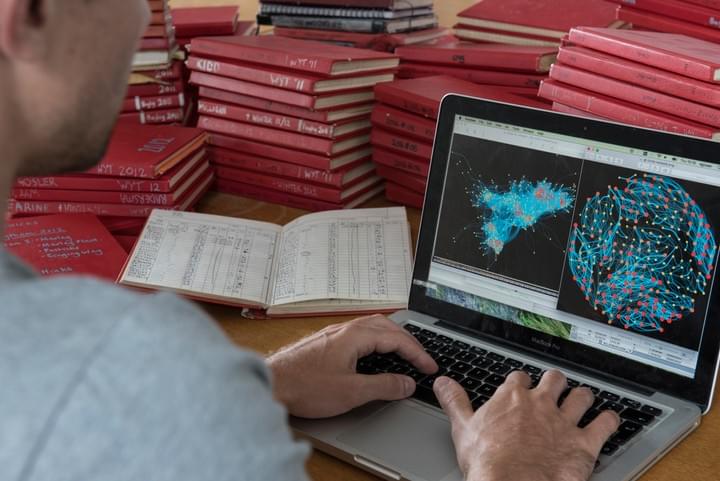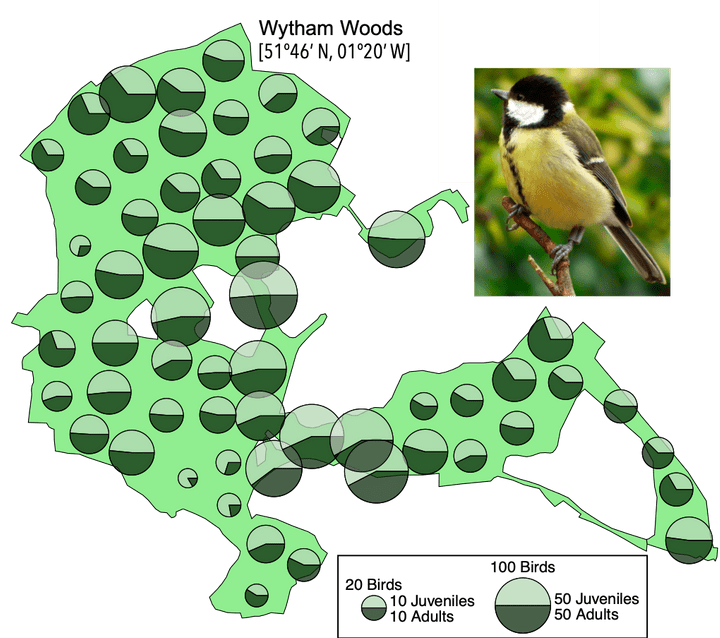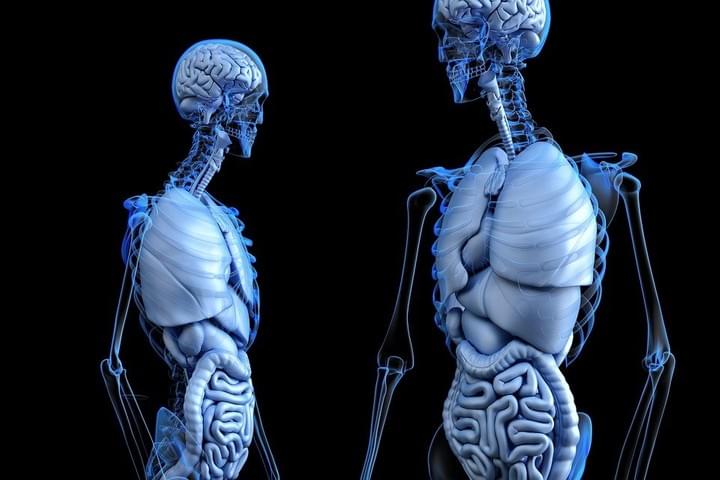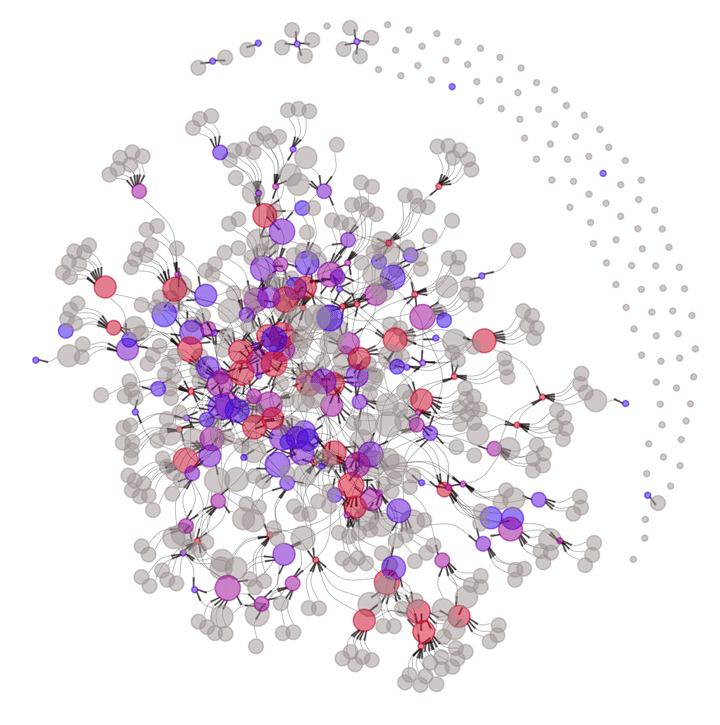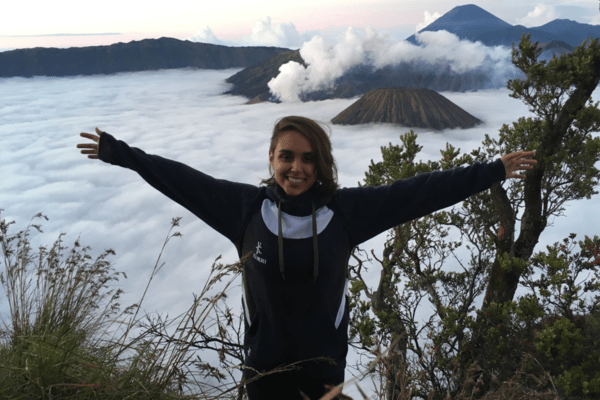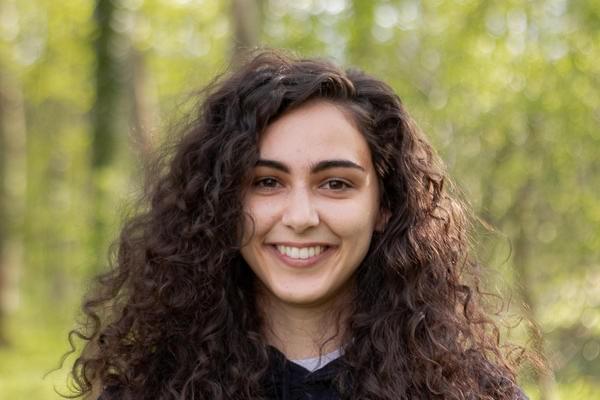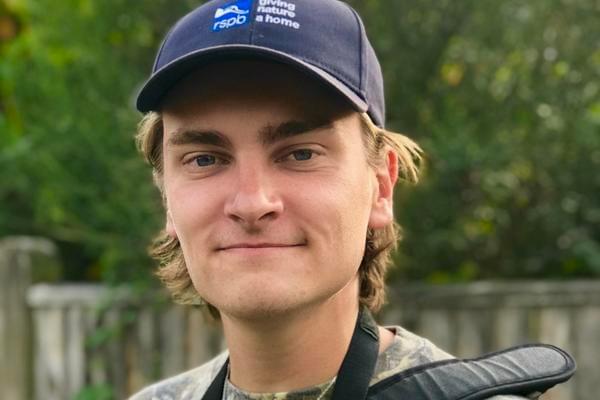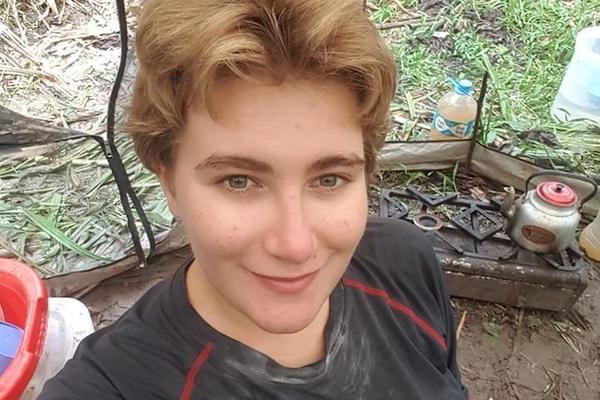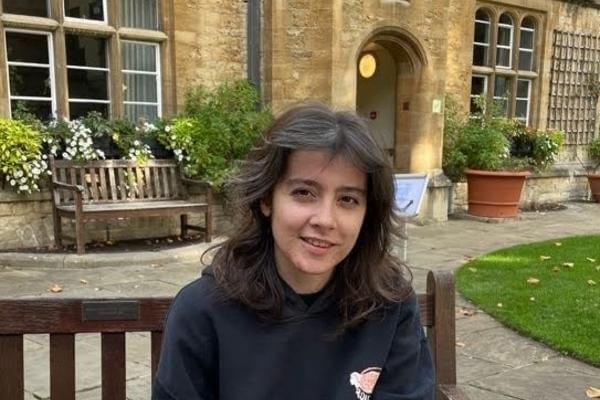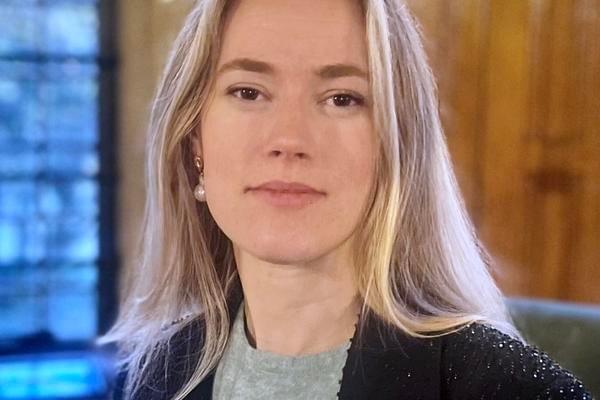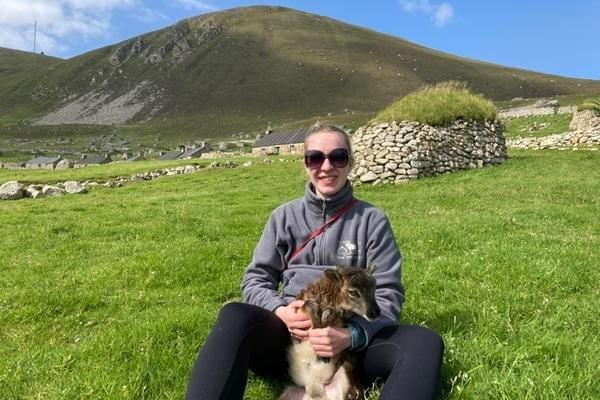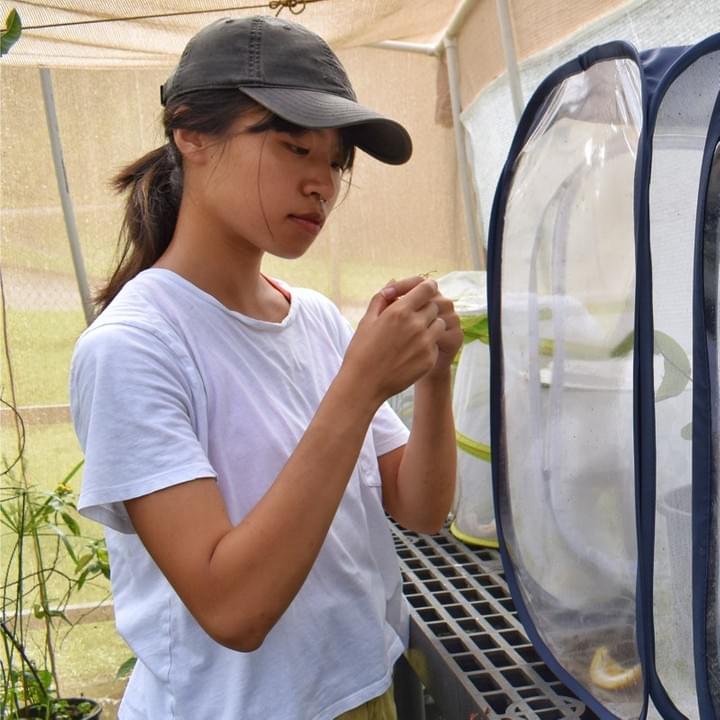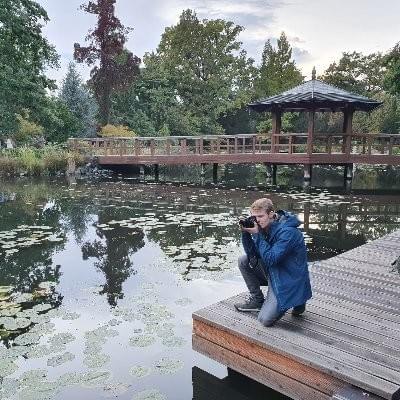

FirthNetwork.com
Dr. Josh A. Firth
Associate Professor - Leeds University
Research Associate - Oxford University
J.A.Firth[at]leeds.ac.uk
Research Areas
Behaviour & Social Networks; Health & Psychiatry; Ecology & Evolution

Behaviour & Social Networks
How behaviour shapes social networks and govern social processes
Why do individuals differ in their behaviour, relationships, and social network positions?
How do behaviours and social networks shape individuals lives, health and fitness?
What are the consequences of social connections for disease transmission and the spread of new behaviours?
Ecology & Evolution
Ecological and evolutionary consequences of individual behaviour in natural populations
How does natural selection shape the traits and behaviours of individuals in wild populations?
What influences selection and what are the consequences?
How does demography interact with environmental factors and individual behaviour?

Health & Psychiatry
Identifying what indicators, and what influences, health and mental wellbeing
How does behaviour (e.g. social & physical activity, internet usage, nutrition) influence mental health?
Why do psychiatric conditions persist & can technological advances help mitigate them?
Which simple measures can we use to best indicate complex conditions?
Study Systems
Research systems, approaches, data, and people

Virtual Worlds
emergent processes, simulation models, internet
The virtual world, and its interface with the real world, is a useful tool for understanding the underpinnings of behaviour and emergent consequences. I am particularly interested in: (1) Using computer simulations of individual-level behaviour to create social systems and assess the meaning of individuals' network positions, how systems can evolve, and how social processes (e.g. contagions) can act on them. (2) Taking empirical data and applying 'null models' to determine which specific components of the real-world data (e.g. time, space, individual traits) are important in shaping the observed patterns. (3) Putting real organisms into virtual worlds to examine how simple rules directly shape real-world behaviour. (4) Understanding how humans respond to virtual settings, particularly in how the online-world may change social interaction patterns, and the consequences of this.

Natural Avian Populations
social relationships, behaviour, ecology
The long-term study of wild birds at Wytham Woods, Oxford, provides an ideal model system for examining social behaviour in natural populations. In particular, the great tit population has been monitored since the 1940's, meaning some individuals today can be traced back 35 generations. This long-term pedigree enables detailed examination of how natural selection may act to shape traits, and how individuals' traits are shaped by genetics and environmental effects. Radio-Frequency Identification tracking of these birds began in 2007, meaning data detailing the winter flocking behaviour of over 10,000 individuals now provides large-scale observational information on their social behaviour. Finally, through developing RFID devices which interact with individuals in real-time, I also use experiments to manipulate social associations between individuals to test the consequences of sociality.

Health Research
health, mental wellbeing, physical activity
As the medical sciences meet with the era of Big Data and tracking technologies, various opportunities to exist to gain an understanding of how individual behaviour relates to health across diverse contexts. In collaboration with biomedical researchers and psychiatrists, I work on various analytical and conceptual lines of research including implementing big datasets to assess contagious disease control, human health (particularly in relation to activity patterns and mental wellbeing), and the consequences of technology usage. These collaborations with the practitioners and researchers working in these areas have fortunately led to realised impact in terms of (i) informing the UK response to COVID pandemic, (ii) contributing to the design of physical heath interventions for people with mental illness, (iii) the development of new tools for measuring activity of people in relation to mental health, and (iv) use in training health professions e.g. through featuring in clinical training textbooks and as part of clinician training courses.

Mammalian Systems
microbiome, ageing, conservation
Using different systems is beneficial for making specialised insights (i.e. answering questions that specific systems are well suited to), and also for making generalised insights (i.e. by finding common patterns). I'm currently involved in various systems, such as (1) using open-access human tracking data for predicting how diseases may spread and designing bespoke intervention procedures to control them, (2) A long-term study of red deer population (with G Albery & N Nussey) and lions (with L Rudd) for understanding how environmental and individual factors shapes social networks, with a particular focus on how age affects societies (3) A wild mouse population in Oxford provides a system for examining how individuals' microbiome is shaped by social behaviour (with Sarah Knowles, Aura Raulo), (4) Conservation, Ecology and Sustainability through tracking online information around different species (with I Jaric).
People
Current Post-doctoral researchers, DPhil/PhD and MSc/MBiol Students

Lauren Rudd
PhD Student
WildCru - Oxford
Lion social dynamics and conservation

Carys Jones
PhD Student
Dept Biol - Oxford
Drivers of phenology in wild birds

Joe Woodman
PhD Student
Dept Biol - Oxford
Ageing and sociality in natural populations

Claire Marr
PhD Student
WildCru - Panthera
Ecology and conservation of mammalian carnivores

Daisy Abraham
PhD Student
Dept Biol - Oxford
Social networks and individual plasticity

Eloise Newman
PhD Student
MRC iCase - Oxford
Costs & benefits of social transmission

Hannah Lemon
PhD Student
NERC DTP - Oxford
Social behaviour & health in mammals

Taylor Bi
MBiol Student
Dept Biol - Oxford
pair-bonding & sociality in wild bird populations

George Rabin
MBiol Student
Dept Biol - Oxford
Trade-offs and social dynamics in wild bird networks
Research Outputs
Publications, Seminars, Professional Activities, Grants, & Media Coverage
Selected Recent Publications:
- Pung R, Firth JA et al. 2024. Temporal contact patterns and the implications for predicting superspreaders and planning of targeted outbreak control. Royal Society Interface. DOI: 10.1098/rsif.2024.0358
- Rudd L, Packer C, Biro D, Firth JA & Albery G. 2024. Sex-specific social ageing in wild African lions. Current Biology. DOI: 10.1016/j.cub.2024.07.040
- Miketinas D, Luo H, Firth JA et al. 2024. Macro- and Micro-Nutrient Intake Among US Women 20 – 44y. JAMA Network Open; DOI: 10.1001/jamanetworkopen.2024.38460
- Jaric I, Firth J, Roll U, Firth JA. 2024. Mental Health Culturomics. PLoS Mental Health. DOI: http://doi.org/10.1371/journal.pmen.0000135
- Albery G et al. & Firth JA. 2024. Divergent age-related changes in parasite infection occur independently of behaviour and demography in a wild ungulate. Royal Society Phil Trans B; DOI: 10.1098/rstb.2023.0508
- Firth J et al & Firth JA et al. 2024. Using physical health apps to promote healthy lifestyles in youth mental healthcare: A nationwide perspective-gathering exercise of over 400 service users. Psychiatry Research. DOI: 10.1016/j.psychres.2024.116187
- Woodman J et al & Firth JA. 2024. The ecology of ageing in wild societies: linking age structure and social behaviour in natural populations. Royal Society Phil Trans B. DOI: 10.1098/rstb.2022.0464
- Aura R, Buerkner P, Dale J, English H, Finerty G, Lamberth C, Firth JA, Coulson T, Knowles S. 2024. Social and environmental transmission spread different sets of gut microbes in wild mice. Nature Ecology & Evolution; DOI: 10.1038/s41559-024-02381-0
- McMahon K et al & Firth JA. 2024. Social network centrality predicts dietary decisions in a wild bird population. iScience; DOI: 10.1016/j.isci.2024.109581
- Firth J et al & Firth JA. 2024. From “online brains” to “online lives”: understanding the individualized impacts of Internet use across psychological, cognitive and social dimensions. World Psychiatry; DOI: 10.1002/wps.21188
- Beck K, Sheldon B & Firth JA. 2023. Social learning mechanisms shape transmission pathways through replicate local social networks of wild birds. eLife; DOI: 10.7554/eLife.85703
- Gokcekus S, Firth JA et al. 2023 Social familiarity and spatially variable environments independently determine reproductive fitness in a wild bird. American Naturalist; DOI: 10.1086/724382
- Beck K, Farine D, Firth JA & Sheldon B. 2o23. Variation in local population size predicts social network structure in wild songbirds. Journal of Animal Ecology; DOI: 10.1111/1365-2656.14015
- Albery GF, Clutton-Brock TH, Morris A, Morris S, Pemberton JM,, Nussey D & Firth JA. 2022. Multiple spatial behaviours govern social network positions in a wild ungulate. Nature Ecology & Evolution; DOI: 10.1038/s41559-022-01817-9
- Pung R, Firth JA et al. 2022. Using high-resolution contact networks to evaluate SARS-CoV-2 transmission and control in large-scale multi-day events. Nature Communications; DOI: 10.1038/s41467-022-29522-y
- Beck K & Firth JA. 2022. Animal Behaviour: Innovation in the city. Current Biology; DOI: 10.1016/j.cub.2021.08.025
- Jarić I, Roll U, Bonaiuto M, Brook B, Courchamp F, Firth JA et al. 2022. Societal extinction of species. Trends in Ecology & Evolution; DOI: 10.1016/j.tree.2021.12.011
- Firth JA & Sheldon B. 2021. The long reach of family ties. Science; DOI: 10.1126/science.abj5234
- Gokcekus S, Cole E, Sheldon B & Firth JA. 2021. Exploring the causes and consequences of cooperative behaviour in wild animal populations using a social network approach. Biological Reviews; DOI: 10.1111/brv.12757
- Albery GF, Morris A, Morris S, Pemberton JM, Clutton-Brock TH, Nussey D & Firth JA. 2021. Multiple spatial behaviours govern social network positions in a wild ungulate. Ecology Letters; DOI: 10.1111.ele.01230
- Firth JA. et al. 2020. Using a real-world network to model localized COVID-19 control strategies. Nature Medicine; DOI: 10.1038/s41591-020-1036-8
- Firth JA. 2020. Considering Complexity: Animal Social Networks and Behavioural Contagions. Trends in Ecology and Evolution; DOI: 10.1016/j.tree.2019.10.009
- Firth JA et al. 2020. Handgrip strength is associated with hippocampal volume and white matter hyperintensities in major depression and healthy controls: a U.K. Biobank study. Psychosomatic Medicine; DOI: 10.1097/PSY.0000000000000753
- Ioannou C, Rocque F, Herbert-Read J, Duffield C, Firth JA. 2019. Predators attacking virtual prey reveal the costs and benefits of leadership. PNAS; DOI: 10.1073/pnas.1816323116
- Firth J, Torous, J, Stubbs, B, Firth JA et al. 2019. The “online brain”: how the Internet may be changing our cognition. World Psychiatry; DOI: 10.1002/wps.20617
- Firth JA. et al. 2018. Personality shapes pair bonding in a wild bird social system. Nature Ecology & Evolution; DOI: 10.1038/s41559-018-0670-8
- Firth J, Firth JA et al. 2018. Association Between Muscular Strength and Cognition in People With Major Depression or Bipolar Disorder and Healthy Controls. JAMA Psychiatry; DOI: 10.1001/jamapsychiatry.2018.0503
- Firth JA. et al. 2017. Indirectly connected: simple social differences can explain the causes and apparent consequences of complex social network positions. Proceedings of the Royal Society B; DOI: 10.1098/rspb.2017.1939.
- Bosse M, Spurgin LG, Laine VN, Cole EF, Firth JA. et al. 2017. Recent natural selection causes adaptive evolution of an avian polygenic trait. Science; DOI: 10.1126/science.aal3298
- Firth JA. et al. 2017. Wild birds respond to flockmate loss by increasing their social network associations to others. Proceedings of the Royal Society B: Biological Sciences;. DOI: 10.1098/rspb.2017.0299
- Firth, JA. & Sheldon, BC. 2016. Social carry-over effects underpin trans-seasonally linked structure in a wild bird population. Ecology Letters; DOI: 10.1111/ele.12669
- Firth, JA. et al. 2015. Experimental Evidence that Social Relationships Determine Individual Foraging Behavior. Current Biology; DOI: 10.1016/j.cub.2015.09.075
- Firth, JA. & Sheldon, BC. 2015. Experimental manipulation of avian social structure reveals segregation is carried over across contexts. Proceedings of the Royal Society B; DOI: 10.1098/rspb.2014.2350
- Click here for full list of publications
Selected Recent Grants & Awards:
FBS Industrial Engagement Award (PI) - June 2024
WildAI Large Research Grant (PI - 2yr) - Nov 2023
USERN 2023 Scientific Medal – Silver – Life Sciences - Oct 2023
NERC Independent Research Fellowship (PI – 5yr) - Sep 2022
Roy. Soc. Rapid Assist. Modelling Pandemic ECI Award - Apr 2021
Royal Society Hooke Scientific Meeting (PI) - Jul 2020
OXBER Seed Grant (Co-I) - Aug 2019
NERC Standard Grant (Co-I) - Apr 2019
BBSRC Discovery Fellowship Award (PI) - Mar 2019
Merton College Junior Research Fellowship (PI) - Oct 2017
EGI Research Fellowship (PI) - May 2016
Contact & CV
Contact me about research opportunities, collaborations, and projects.
Josh A Firth © 2020



